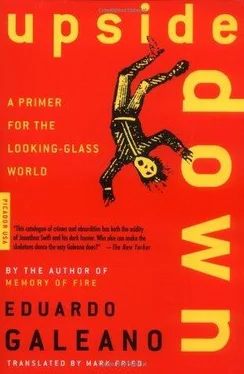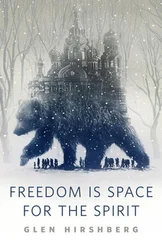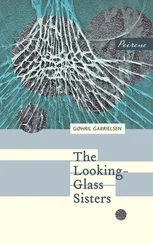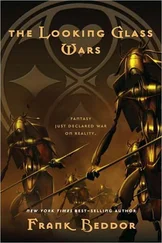Eduardo Galeano
Upside Down: A Primer for the Looking-Glass World
For Helena, this book that I owed her
LADIES AND GENTLEMEN, COME ON IN!
Come on in!
Step into the school of the upside-down world!
Rub the magic lantern!
Lights! Sound! The illusion of life!
Offered free to one and all!
Let it enlighten each of you and set a good example for future generations!
Come see the river that burns!
Lord Sun illuminating the night!
Dame Moon in the middle of the day!
Mam’selle Star tossed from the sky!
The jester on the king’s throne!
Lucifer’s breath clouding the universe!
The dead walking about with mirrors in their hands!
Witches! Acrobats!
Dragons and vampires!
The magic wand that turns a child into a coin!
The world lost in a throw of the dice!
Don’t fall for cheap imitations!
God bless those who see it!
God forgive those who don’t!
Rated R: Sensitive persons and minors not admitted.
— Based on eighteenth-century criers’ pitch for magic lanterns

People respect nothing nowadays. Once we put virtue, honor, truth, and the law on a pedestal.… Graft is a byword in American life today. It is law where no other law is obeyed. It is undermining the country. Virtue, honor, truth and the law have all vanished from our life.
— Al Capone, speaking to Cornelius Vanderbilt Jr. The interview was published in Liberty magazine on October 17, 1931, a few days before Capone went to jail.


One hundred and thirty years ago, after visiting Wonderland, Alice stepped into a mirror and discovered the world of the looking glass. If Alice were born today, she’d only have to peek out the window.
If you decide to train your dog, congratulations on your decision. You will soon discover that the roles of master and dog are perfectly clear.
— RALSTON PURINA INTERNATIONAL


The looking-glass school is the most democratic of educational institutions. There are no admissions exams, no registration fees, and courses are offered free to everyone everywhere on earth as well as in heaven. It’s not for nothing that this school is the child of the first system in history to rule the world.
In the looking-glass school, lead learns to float and cork to sink. Snakes learn to fly and clouds drag themselves along the ground.
MODELS OF SUCCESS
The upside-down world rewards in reverse: it scorns honesty, punishes work, prizes lack of scruples, and feeds cannibalism. Its professors slander nature: injustice, they say, is a law of nature. Milton Friedman teaches us about the “natural rate of unemployment.” Studying Richard Herrnstein and Charles Murray, we learn that blacks remain on the lowest rungs of the social ladder by “natural” law. From John D. Rockefeller’s lectures, we know his success was due to the fact that “nature” rewards the fittest and punishes the useless: more than a century later, the owners of the world continue to believe Charles Darwin wrote his books in their honor.
Survival of the fittest? The “killer instinct” is an essential ingredient for getting ahead, a human virtue when it helps large companies digest small and strong countries devour weak but proof of bestiality when some jobless guy goes around with a knife in his fist. Those stricken with “antisocial pathology,” the dangerous insanity afflicting all poor people, find inspiration in the models of good health exhibited by those who succeed. Lowlifes learn their skills by setting their sights on the summits. They study the examples of the winners and, for better or worse, do their best to live up to them. But “the damned will always be damned,” as Don Emilio Azcárraga, once lord and master of Mexican television, liked to say. The chances that a banker who loots a bank can enjoy the fruits of his labor in peace are directly proportional to the chances that a crook who robs a bank will land in jail or the cemetery.
When a criminal kills someone for an unpaid debt, the execution is called a “settling of accounts.” When the international technocracy settles accounts with an indebted country, the execution is called an “adjustment plan.” Financial capos kidnap countries and suck them dry even when they pay the ransom: in comparison, most thugs are about as dangerous as Dracula in broad daylight. The world economy is the most efficient expression of organized crime. The international bodies that control currency, trade, and credit practice international terrorism against poor countries, and against the poor of all countries, with a cold-blooded professionalism that would make the best of the bomb throwers blush.
The arts of trickery, which con men practice by stalking the gullible on the street, become sublime when certain politicians put their talents to work. In the shantytown nations of the world, heads of state sell off the remnants of their countries at fire-sale prices, just as in the shantytowns of cities criminals unload their booty for peanuts.

Hired guns do much the same work, albeit at retail, as the generals whose wholesale crimes get billed as acts of glory. Pickpockets lurking on street corners practice a low-tech version of the art of speculators who fleece the multitudes by computer. The worst violators of nature and human rights never go to jail. They hold the keys. In the world as it is, the looking-glass world, the countries that guard the peace also make and sell the most weapons. The most prestigious banks launder the most drug money and harbor the most stolen cash. The most successful industries are the most poisonous for the planet. And saving the environment is the brilliant endeavor of the very companies that profit from annihilating it. Those who kill the most people in the shortest time win immunity and praise, as do those who destroy the most nature at the lowest cost.
Walking is risky and breathing a challenge in the great cities of the looking-glass world. Whoever is not a prisoner of necessity is a prisoner of fear, deprived of sleep by anxiety over the things he lacks or by terror of losing the things he has. The looking-glass world trains us to view our neighbor as a threat, not a promise. It condemns us to solitude and consoles us with chemical drugs and cybernetic friends. We are sentenced to die of hunger, fear, or boredom — that is, if a stray bullet doesn’t do the job first.
Is the freedom to choose among these unfortunate ends the only freedom left to us? The looking-glass school teaches us to suffer reality, not change it; to forget the past, not learn from it; to accept the future, not invent it. In its halls of criminal learning, impotence, amnesia, and resignation are required courses. Yet perhaps — who can say — there can be no disgrace without grace, no sign without a countersign, and no school that does not beget its counterschool.
Читать дальше

















